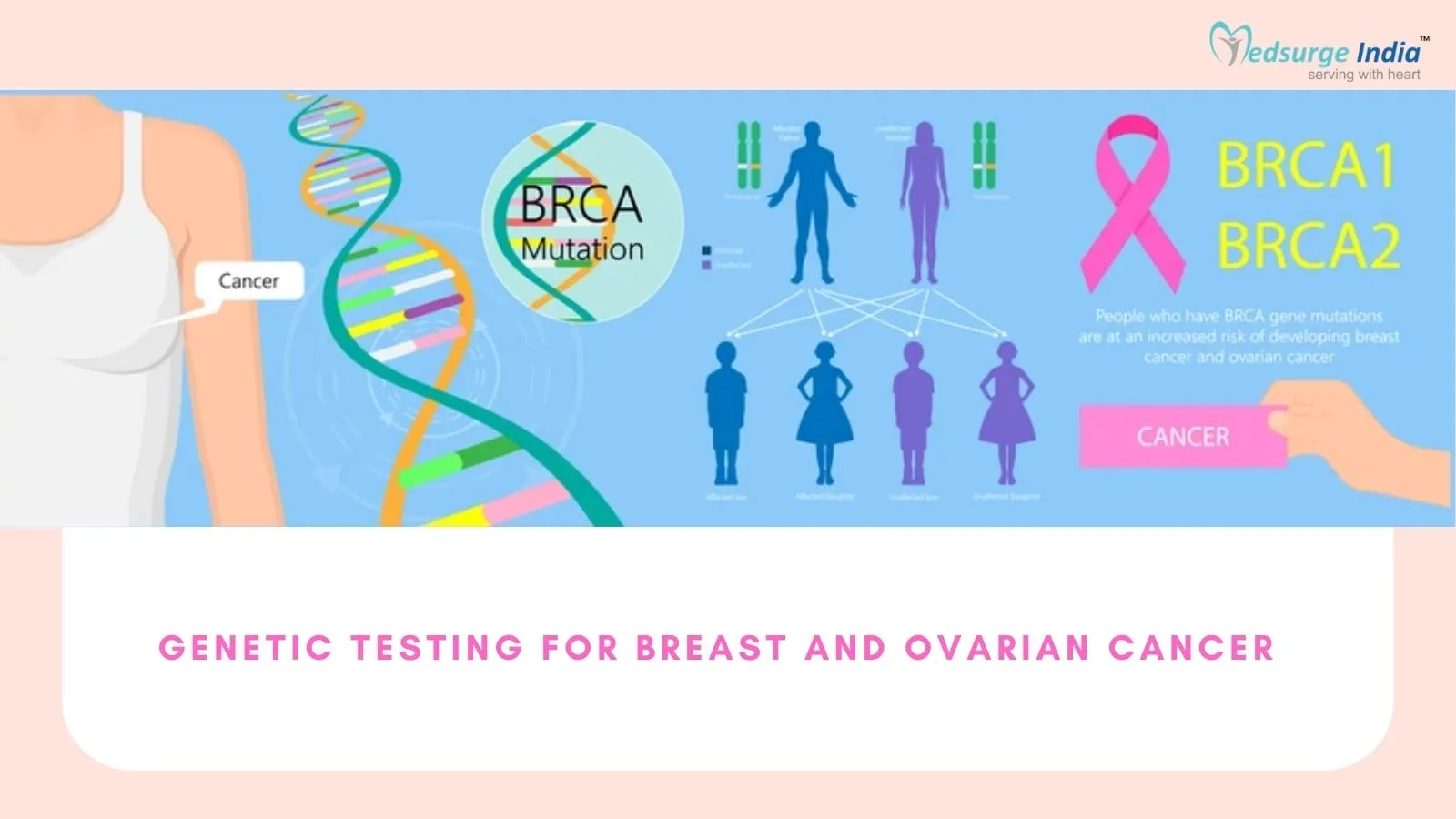
Gene alterations play a role in all malignancies. Mutations are the name given to these alterations. Most occurrences of breast and ovarian cancer are caused by haphazard mutations. However, breast and ovarian cancers can occasionally run in families, meaning that mutations are inherited. These conditions are known as inherited cancers.
The genes BRCA1 and BRCA2 (breast cancer genes 1 and 2) are most frequently the sites of inherited gene alterations for breast and ovarian cancer. Children can inherit the mutations from either parent. Breast, ovarian, prostate, and pancreatic cancer risk are all higher in people with BRCA mutations.
Genetic testing has revolutionized the field of medicine, offering individuals the opportunity to gain valuable insights into their health. One area where genetic testing has made a significant impact is in the identification of hereditary breast and ovarian cancer.
What is Genetic Testing
Genetic testing searches for abnormalities in particular genes, commonly known as “pathogenic” or harmful variations, changes, or mutations. The outcome of genetic testing can assist you in determining your likelihood of contracting particular illnesses, such as breast, ovarian, prostate, or pancreatic cancer. It is possible to test for harmful variations in a variety of genes.
Causes of Hereditary Breast And Ovarian Cancer
Hereditary breast and ovarian cancer (HBOC) are conditions caused by specific gene mutations, such as BRCA1 and BRCA2. These mutations significantly increase a person’s risk of developing breast and ovarian cancer during their lifetime. Genetic testing allows individuals to determine if they carry these mutations, enabling them to make informed decisions about their health.
Helpful: Best Ovarian Cancer Hospitals in India
Types of Genetic Testing
There are several different types of genetic testing that can be performed, each with its own specific purpose. Some of the most common types of genetic testing include diagnostic testing, predictive testing, carrier testing, and new born testing.

- Diagnostic testing is used to determine if a person has a genetic condition that is causing their symptoms.
- Predictive testing is used to determine if a person is at risk of developing a particular genetic condition.
- Carrier testing is used to determine if a person is a carrier of a genetic condition that can be passed on to their children.
- Newborn screening is used to identify genetic conditions in newborns that can be treated early to prevent serious health problems.
Overall, genetic testing can provide valuable information about a person’s health and help healthcare professionals make accurate diagnoses and treatment plans.
Benefits of Genetic Testing For HBOC
One of the primary benefits of genetic testing for HBOC is the ability to identify individuals who are at a higher risk of developing these cancers. This knowledge empowers individuals to take proactive steps in managing their health and reducing their risk. For example, individuals who test positive for BRCA mutations can opt for increased cancer surveillance, including regular screenings and monitoring. Additionally, they may consider preventive measures, such as prophylactic surgeries or medications, to reduce their risk.
Genetic testing also plays a crucial role in family planning for individuals with a family history of HBOC. If a person tests positive for a BRCA mutation, their children have a 50% chance of inheriting the mutation. By undergoing genetic testing, individuals can understand the potential risk their children may face and make informed decisions about family planning. They may choose to pursue options such as preimplantation genetic diagnosis (PGD) or consider other reproductive options.
In addition to individual benefits, genetic testing for HBOC has wider implications for cancer research and treatment. By identifying individuals who carry these gene mutations, researchers can study the impact of these mutations on cancer development and progression. This knowledge helps in developing targeted therapies and personalized treatment plans for individuals affected by hereditary breast and ovarian cancer.
It is important to note that genetic testing for HBOC is a personal decision and should be made in consultation with a healthcare professional. Genetic counselors play a critical role in helping individuals understand the benefits, limitations, and potential implications of genetic testing. They provide guidance and support throughout the testing process, ensuring individuals have the necessary information to make informed decisions about their health.
Know More: Pancreatic Cancer Treatment Cost in India
Bottom Line
In conclusion, genetic testing for hereditary breast and ovarian cancer has transformed the way we approach cancer prevention and management. By identifying individuals who carry BRCA mutations, we can offer them personalized care and support in reducing their risk and making informed decisions about their health. Through ongoing research and advancements in genetic testing, we continue to make progress in the fight against hereditary breast and ovarian cancer.
Reference
- https://medlineplus.gov/genetictesting.html
- https://www.uptodate.com/contents/genetic-testing-for-hereditary-breast-ovarian-prostate-and-pancreatic-cancer-beyond-the-basics
- https://portal.ct.gov/DPH/Genomics/Breast-Cancer/Genetic-Testing-for-Hereditary-Breast–Ovarian-Cancer-What-You-Should-Know



 (1).png)